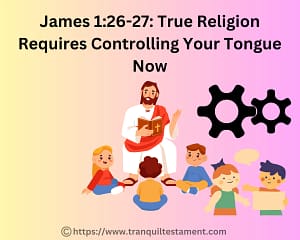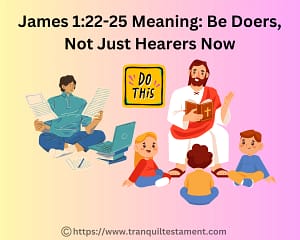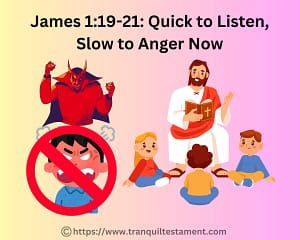BIBLE GATEWAY Proverbs 22:4 :: NASB.
Verse 2 reads,
“The rich and the poor have a common bond, the Lord is the maker of them all.”
Is there a difference between a rich man and a poor man? Of course, as far as the world is concerned, there is a great deal of difference. A wealthy man, or woman, has been successful in their daily life or they may have inherited the money.
Wealth may also lead to power and influence. In government or industry, they are seen as people who can “get things done”.
They are often admired for their wealth. People may dress or join in activities that the “rich and famous” enjoy. At one time, the motorcycle manufacturing company, Harley Davidson, was on the verge of bankruptcy until a very wealthy man, Malcolm Forbes and Hollywood celebrities began riding Harley Davidson motorcycles. The company was reborn from the publicity.
Then you have the poor. These people have little money, few resources, and little influence. More “successful” people may consider them with an attitude of distain or pity. Many people in this situation were born into it. In some cultures, it is very difficult to “move up” to better conditions.
But there always seems to be the thought, “They are poor because they are lazy.” Being poor is a sign of failure. According to the world, no one would ever set the personal goal of being poor.
But the Bible clearly indicates that God does not view people by the standard of the world. In Mark 12:41-44 Jesus made a point to His disciples,
“Now Jesus sat opposite the treasury and saw how the people put money into the treasury. And many who were rich put in much. Then one poor widow came and threw in two copper coins, which amount to a cent. So He called His disciples to Himself and said to them, ‘Assuredly, I say to you that this poor widow has put in more than all those who have given to the treasury; for they all put in out of their abundance, but she out of her poverty put in all that she had, her whole livelihood.’”
Notice that the economic status of the people was immaterial. Jesus was not looking at the physical wealth or status of the people, but the faith and love that they had. The poor widow was praised because she gave all she had out of a love for God.
In Micah 6:6-8, Micah wrote,
“With what shall I come to the Lord and bow myself before the God on high? Shall I come to Him with burnt offerings, with yearling calves? Does the Lord take delight in thousands of rams,
In ten thousand rivers of oil? Shall I present my firstborn for my rebellious acts, the fruit of my body for the sin of my soul? He has told you, O man, what is good; and what does the Lord require of you but to do justice, to love kindness, and to walk humbly with your God?”
There is no virtue in wealth or poverty. The measuring stick is the same for both. God looks to the heart of a person.
Verse 3 states,
“The prudent sees the evil and hides himself, but the naive go on, and are punished for it.”
Proverbs contains many passages concerning a prudent person and a naïve person. But how does a person become prudent? One might suggest that prudence comes from experience. A person makes mistakes and learns from those mistakes and avoids them in the future.
That is certainly true if a person is willing to learn from those mistakes. But in this passage, the writer says that the prudent “sees” the evil. The prudent person recognizes the evil ahead of time and avoids the potential danger.
In Hebrews 5:11-13 criticized his readers because they had not grown in their understanding of God’s Word. Then, in verse 14, he wrote,
“But solid food is for the mature, who because of practice have their senses trained to discern good and evil.”
The foundation for a prudent person has always been a good solid understanding of the Word God and the ability to apply those principles to the challenges of everyday life.
Unfortunately, the opposite is a person that is naïve. Either from youth or ignorance, this person approaches situations with absolutely no idea of the possible consequences. The story of the Prodigal Son is a good example of this attitude.
The younger son demanded his portion of the inheritance even though his father was still living. Once he received his money, he went off to a distant land as proceeded to throw away every penny he had received. Suddenly, he was broke, friendless, and starving. There are consequences for actions.
Tragically, young men and women entering adulthood go down the same path as the Prodigal Son. They are eager to experience adventure, new things, new places, and new friends. But evil predators lie in wait for such naïve victims, and that new adventure becomes a nightmare place of horror.
Proverbs 22:4 says,
"The reward of humility and the fear of the Lord Are riches, honor, and life."
Verse 9 states,
“He who is generous will be blessed, for he gives some of his food to the poor.”
Pride and arrogance are universally condemned in both the Old and New Testaments. Along with that is the unwillingness to help others in need. Even with a generous heart, it is physically impossible to help every person in need. But a person CAN help individual people in need.
During the harvest of crops, The Law of Moses mandated that a portion be left for the poor. In Jerusalem, at the beginning of the Church, steps were taken to ensure that the widows were properly fed. As Christianity spread and congregations were established, procedures were taken to care for widows and orphans.
So, people, especially Christians, are expected to help others in need. While this may seem like a task, an unusual thing happens when a person helps others. That person begins to feel a sense of fulfillment, happiness, and peace.
One man wrote that one way to battle loneliness or isolation was to help others. A generous person is truly blessed. One person said that he gained more from helping others than they do. What a joyful thought!
Verse 10 states,
“Drive out the scoffer, and contention will go out, even strife and dishonor will cease.”
It is an unfortunate fact that some people do not seem to be happy unless they keep things stirred up. It may be within the family, at work, at social events, or within a congregation of the church. They either ridicule beliefs and principles, or they cause dissension.
The attitude and actions of a scoffing and contentious person often come because that person is unhappy or bitter. Almost everyone has been affected by such people, but because it happens does not make it right or acceptable. In a congregation, this is especially true.
The New Testament contains scripture after inspired scripture that commands Christians to love one another.
John wrote in 1 John 4:7-8,
“Beloved, let us love one another, for love is from God; and everyone who loves is born of God and knows God. The one who does not love does not know God, for God is love.”
John also states in 1 John 4:20-21,
“If someone says, ‘I love God,’ and hates his brother, he is a liar; for the one who does not love his brother whom he has seen, cannot love God whom he has not seen. And this commandment we have from Him, that the one who loves God should love his brother also.”
It is clear that these actions and attitudes are contrary to God’s Will for Christians.
Verse 14 states,
“The mouth of an adulteress is a deep pit; he who is cursed of the Lord will fall into it.”
This is a person that willfully lives a life of sin. Verse 14 states that such a person is cursed of the Lord. He/she either has no thought of God and His Will or holds Him in contempt and ridicule.
In Romans 1, Paul described the consequence of unbelief and sin.
In Romans 1:28-32, Paul wrote,
“And just as they did not see fit to acknowledge God any longer, God gave them over to a depraved mind, to do those things which are not proper, being filled with all unrighteousness, wickedness, greed, evil; full of envy, murder, strife, deceit, malice; they are gossips, slanderers, haters of God, insolent, arrogant, boastful, inventors of evil, disobedient to parents, without understanding, untrustworthy, unloving, unmerciful; and although they know the ordinance of God, that those who practice such things are worthy of death, they not only do the same, but also give hearty approval to those who practice them.”
Sin and lust dig their own grave. Eventually, everything else in that person’s life is brought to ruin. The only recourse is full and genuine repentance and a turning to God. Unfortunately, too many will continue to live a life of misery and sin…a life that is cursed.
Verses 22-23 carry a common thought.
“Do not rob the poor because he is poor, or crush the afflicted at the gate; for the Lord will plead their case and take the life of those who rob them.”
The rich have various levels of protection that guard them from much of the dangers of life, but the poor do not have such protection. They are vulnerable to people that are stronger, have more power, or prey on the less fortunate.
In this life, it may seem that the poor have no recourse, but verse 23 carries both a promise and warning.
“For the Lord will plead their case and take the life of those who rob them.”
The weak and the poor have a champion, and that champion is the Living God. Sometimes, in this life, judgment falls on a person or organization that preys on the poor. It may come from law enforcement or others that provide protection.
Sometimes, it comes from within, because sin is self-destructive. Eventually, it will destroy itself. And even if it seems that the poor never received justice against such predators, the day of reckoning will come, and the oppressor will face the wrath of God.







[…] “When you sit down to dine with a ruler, consider carefully what is before you, and put a knife to your throat if you are a man of great appetite. Do not desire his delicacies, for it is deceptive food.” […]